Why You Are Feeling More Social Anxiety and How To Cope
Photo by Priscilla Du Preez
These last couple of years have been a rollercoaster of emotions and information. We’ve gone from the highs of seeing our loved ones again to the lows of canceled events and new restrictions rolling back out. Amidst all these changes, many of us are feeling more social anxiety. The thought of going to a crowded bar or speaking in front of people in an actual office might fill you with dread.
Am I Experiencing Social Anxiety?
The definition of social anxiety is fear of being negatively judged in social situations. This fear can cause your body to go through all kinds of changes, such as increased heart rate, trembling, blushing, and muscle tension. This anxiety can also affect how you’re thinking or acting. You may be avoiding gatherings or getting wrapped up in your worries about what other people think of you. If you are feeling nervous or overwhelmed at the thought of social situations, you may be experiencing social anxiety.
Why is your heart racing in social situations you used to enjoy?
We all experience some social anxiety. We have to care about how others feel about us to develop and maintain relationships. Our social connections are essential to our survival. So, some degree of social anxiety is normal and even good for you. Social anxiety can motivate you to be prepared for a speech or bring flowers on a first date.
While some anxiety can be good for us, the feeling of anxiety can be uncomfortable. If you see people regularly—at work, at family events, or just hanging out with friends, you can get used to the sensation. Over time, your brain adjusts to the experience and the intensity levels off.
Losing Practice
In a world where our ability to connect in person has changed so much, we’ve gotten out of practice. We haven’t had as many opportunities to feel these sensations. Habituation is the process through which you get used to physical sensations. When you jump into a cold lake, you experience habituation. It feels freezing at first, until your body gets used to it and the water becomes tolerable. Because we spend so much time in our own homes or with the same small set of people, we’ve lost some of our tolerance for the feeling of social anxiety itself.
Missed Lessons About our Worries
We also haven’t had as many opportunities to test out our worries. You may be worried that coworkers you’ve only seen over video will think you’re awkward in person. Or that you’ll run out of things to say at a party. If you avoid those situations, you never get to find out if your fear would come true.
The pandemic has forced us to miss out on so many social experiences we could learn valuable lessons about—like the fact that you get along really well with your coworkers or no one is judging you at that party. If you notice a pattern of avoiding social situations because of fear, you might be dealing with Social Anxiety Disorder. Social anxiety becomes a diagnosable mental health condition when it regularly stops you from doing the things you care about.
Uncertainty
Uncertainty is like lighter fluid for anxiety. Anxiety is meant to protect us from possible future harm. When something is uncertain, the risk of harm can seem higher because we don’t know what to expect or how to plan for it. Many of our relationships have become uncertain through lack of contact or differing views on how to handle the pandemic. Everyone’s comfort level and safety precautions can seem uncertain, making it trickier to navigate social interaction.
Can Social Anxiety Be Cured?
If you already struggled with social anxiety before the pandemic or just started experiencing it in these last few years, you’re not ruined forever. Fear can be created or strengthened. But the cycle can also be interrupted. Your brain is capable of creating new associations with old fear triggers. It can learn, through experience, to respond to social situations in more resilient ways.
You’ll never be able to eliminate anxiety entirely. It’s a natural, inevitable human experience. But you can change your relationship with it. You can overcome your anxiety to get back to the things you care about.
Dealing with Social Anxiety
Name It
Like any problem, understanding the issue is the first step to step to solving it. Recognize when you are experiencing social anxiety. Label the feeling itself- “I am feeling anxious” and the physical sensations “my face is red, my hands are trembling.” Putting a name to your experience helps get some distance from it so you can choose how to respond instead of reacting impulsively. Check out my blog on the physical symptoms of anxiety and panic to better recognize your own symptoms.
Allow it
Avoidance reinforces fear. Your brain takes it as a message that the thing you are avoiding is dangerous. Avoiding feeling the emotion of anxiety itself can reinforce your fear. Instead of trying to stop feeling anxious, allow yourself to feel it. This can be hard, especially at first, because anxiety can be uncomfortable. But approaching anxiety with openness and willingness can teach your brain that the sensation is uncomfortable, but not dangerous. It can help to straighten your back, loosen your muscles, and generally open your posture. All emotions pass with time. If you lean into the feeling instead of trying to escape it, you allow the emotion to peak and naturally diffuse on its own.
Identify Your Triggers
Begin to pay attention to the kinds of things that make you socially anxious. Are you anxious in front of crowds, with strangers, or one-on-one? Start to make a list of your common triggers. Think about different factors that would affect your anxiety, such as if you’re alone, if you’re performing, or unprepared. Add those factors to your list of triggers.
Practice Facing your Triggers
Slowly start to face your triggers, moving from things that are mildly uncomfortable to more challenging situations. Think of this like building muscle. If you wanted to become a weight lifter, you wouldn’t start with 100-pound weights. You might start lifting 5-pound weights, then move on to 10, and so on.
Taking one small step at a time can help you build momentum. It can be as simple as striking up a conversation with the cashier at the grocery store. Pick something that feels uncomfortable, but not overwhelming. Then commit to practicing. Keep doing that one social thing as often as you can. Then, when you feel ready, move on to the next thing, such as going to a party. Remember, the goal is not to stop feeling anxious, because that would be avoidance. The goal is to start doing the things you care about while facing your anxiety to teach your brain that these situations aren’t dangerous.
Shift Your Focus
Social anxiety often involves a hyper-focus on ourselves. Does she notice my voice shaking? Is he thinking I’m weird? With practice, you can shift your attention at will. Notice when you’re fixating on yourself, and then shift your focus to the person or activity you’re trying to engage with. The thoughts going through your mind are just thoughts. They may or may not be true. Don’t try to suppress the thoughts, because that doesn’t work and will likely make it worse. Start treating them like white noise by noticing your thoughts, then moving your attention to the present moment. Meditation is a great way to build that ability.
Recognize and Reduce Unhelpful Behaviors
Safety behaviors are things that we do that give us a temporary, false sense of safety. These behaviors can lower our anxiety in the moment but are actually prolonging it in the long term. A simple example is a security blanket. If a child is afraid of being alone and carries around a security blanket, that makes him feel safer when he has his blanket but also reinforces his belief that being alone is scary. Safety behaviors feed into our fears because if we act like something is dangerous, we’re giving our brain the message to keep making us afraid to protect us. Some common examples of safety behaviors for social anxiety include:
Avoiding eye contact
Bringing someone you know
Looking at/playing with your phone to avoid conversation or the feeling of anxiety
Avoiding speaking
Changing the subject away from talking about yourself
Drinking or drugs
Excuses to leave early if you feel uncomfortable
Going to the bathroom or other room if you feel anxious
Planning or rehearsing what to say before a social gathering
Talking excessively to avoid silence
As you practice being in social situations, start to reduce or eliminate your safety behaviors. Like your list of triggers above, start with something that feels mildly uncomfortable but not overwhelming, then continue to move up the list.
Face the Fear Head On
When you feel socially anxious, your brain is registering social judgment as the lion waiting to bite your head off. Embarrassment and disappointment are being perceived as dangerous. To overcome social anxiety, practice facing your fear of social judgment itself. Practice making mistakes, being imperfect, and disappointing people in small ways, on purpose. This can help you learn that social judgment can be distressing in the moment, but it’s not something you have to live in fear of.
Be Kind and Patient with Yourself
Facing your fear is hard because you’re supposed to listen to it. Fear is meant to protect us so it makes total sense that you would try to avoid things that make you nervous. The pandemic gave your brain lots of reasons to feel anxious about social situations. It’s ok if you struggle with social anxiety. It doesn’t mean you’re broken or stuck like this. Your brain is basically giving you a false alarm because it’s been trained to be on alert these last couple years. You can help it learn to respond differently, but it can be a challenging process. Try not to beat yourself up when you struggle. Practice being as patient and supportive with yourself as you would be with a friend.
Social anxiety is normal but shouldn’t stop you from living your life. If anxiety is preventing you from connecting with others or doing things you want, it may be time to reach out for help. I specialize in working with anxiety and OCD. Schedule a free 15-minute consultation or contact me at mayra@anxietycenterca.com, 818-473-0945.


